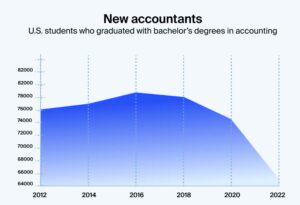Ever wondered what sets accountants apart from bookkeepers? While they both handle numbers and financial tasks, their roles are quite different. Bookkeepers are the ones who keep track of daily transactions, making sure everything is recorded properly. Accountants, on the other hand, take that information and analyze it to help businesses make big decisions. Understanding these differences is key for businesses to know when to call on each type of professional.
Key Takeaways
- Bookkeepers manage the day-to-day recording of financial transactions, ensuring accuracy and up-to-date records.
- Accountants analyze financial data to provide insights and strategic advice for business growth.
- The main distinguishing factor between accountants and bookkeepers is the level of financial analysis involved.
The Great Divide: Bookkeepers vs. Accountants
Bookkeepers: The Unsung Heroes of Daily Transactions
Alright, let’s talk about bookkeepers. These folks are like the backstage crew of a play, making sure everything runs smoothly without ever stepping into the spotlight. They’re the ones who keep track of every penny, recording all those daily transactions that, let’s be honest, most of us would rather avoid.
Bookkeepers are the backbone of any business’s financial health, ensuring that everything from invoices to payroll is accurate and up-to-date. They handle the nitty-gritty details, so you don’t have to. Imagine trying to juggle all those numbers and receipts without them—total chaos, right?
Accountants: The Strategic Planners
Now, accountants are the strategists. If bookkeepers are the ones keeping the ship afloat, accountants are the ones plotting the course. They take all that data bookkeepers meticulously gather and turn it into insights. They’re the masterminds behind financial statements, tax planning, and helping businesses make smart, strategic decisions.
Accountants are like financial detectives, digging deep into the numbers to find opportunities and risks. They help you see the bigger picture and plan for the future, ensuring you’re not just surviving but thriving.
Why Both Roles Matter in Business
You might be thinking, "Can’t I just pick one?" Well, not really. Both roles are crucial for a business to run smoothly. Bookkeepers keep everything organized, while accountants provide the analysis and advice needed to make informed decisions.
Think of it like this: bookkeepers lay the groundwork, and accountants build on it. Without accurate records, accountants can’t do their job effectively. And without strategic planning, all those meticulous records won’t lead to growth.
Common Misconceptions About Their Roles
There’s a common myth that bookkeepers and accountants do the same thing, but that’s like saying a chef and a food critic have the same job. Sure, they both deal with food, but their roles are entirely different.
Here’s the scoop:
- Bookkeepers focus on recording transactions.
- Accountants analyze and interpret that data.
- Bookkeepers ensure accuracy.
- Accountants provide insights and strategy.
Understanding the difference can help you decide when you need a certified bookkeeper or when it’s time to call in an accountant. Each has a unique skill set that, when combined, keeps your business on track.
Education and Qualifications: Who Needs What?

Bookkeeping Basics: What You Need to Get Started
Alright, so you’re thinking about diving into the world of bookkeeping, huh? Well, good news! You don’t need a PhD to get started. In fact, most bookkeepers start with a high school diploma. But if you want to be a certified public bookkeeper, you might want to consider some additional training. Courses in accounting or finance can really give you a leg up. And hey, if you get friendly with software like QuickBooks, you’re golden. Mastering essential skills is key here—think attention to detail and a knack for numbers. It’s all about keeping those financial records squeaky clean.
Accounting Credentials: Climbing the Professional Ladder
Now, if you’re eyeing the accountant’s chair, you’re going to need a bit more paper on the wall. Most accountants kick things off with a bachelor’s degree in accounting or a related field. But don’t stop there! Many go on to snag a Master’s in Accountancy or even an MBA with a focus on accounting. And let’s not forget the holy grail of accounting: the CPA (Certified Public Accountant) title. This bad boy requires passing a tough exam and meeting some strict education and experience requirements. It’s like the Olympics of accounting, but without the medals.
Certifications That Make a Difference
Certifications are like the sprinkles on your career cupcake. For bookkeepers, getting certified through organizations like the National Association of Certified Public Bookkeepers can boost your career prospects. For accountants, the CPA is just the start. There are other badges to earn, like the Chartered Accountant (CA) or Certified Management Accountant (CMA). These not only make your resume shine but also open doors to higher-level gigs and specialized roles. Plus, they show you’re serious about keeping up with the ever-changing financial landscape.
The Learning Curve: From Bookkeeper to Accountant
Thinking about making the leap from bookkeeping to accounting? It’s like going from playing in the minor leagues to the big leagues. You’ll need to beef up your education and maybe even tackle some certifications. But don’t worry, it’s totally doable! The transition often involves gaining more in-depth knowledge of financial reporting, tax laws, and auditing standards. And hey, once you make the jump, the world of financial strategy and planning is your oyster. Just remember, every accountant was once a bookkeeper—it’s all about climbing that professional ladder!
Tools of the Trade: What Sets Them Apart?

Software Solutions for Bookkeepers
Alright, let’s dive into the digital toolbox of bookkeepers. These folks are the unsung heroes who keep the financial wheels turning smoothly. Their go-to gadgets? Think QuickBooks, Xero, and FreshBooks. These software solutions are like the Swiss Army knife for bookkeepers, handling everything from recording transactions to generating invoices. You know, the everyday stuff that keeps the business lights on. Bookkeepers love these tools because they simplify data entry and ensure everything’s up-to-date and accurate—no more lost receipts or forgotten expenses!
Accountants' Arsenal: Advanced Tools and Techniques
Now, accountants, on the other hand, need something a bit more, let’s say, robust. They’re not just crunching numbers; they’re strategizing. So, they turn to heavy hitters like Intuit ProConnect, Sage, and Microsoft Dynamics GP. These platforms aren’t just about adding up numbers—they’re about analyzing them. Accountants use these tools for tax prep, audits, and crafting those oh-so-important financial statements. It’s like having a financial crystal ball, helping them see the big picture and guide businesses through the murky waters of compliance and strategy.
The Role of Technology in Modern Finance
Technology, my friend, is the name of the game. It’s revolutionizing how both bookkeepers and accountants do their jobs. With cloud-based solutions and real-time data access, financial professionals can now work from anywhere, anytime. This shift not only boosts efficiency but also enhances collaboration between teams. Imagine a world where your accountant can update your financial strategy while lounging on a beach. Thanks to technology, that’s not just a dream anymore!
How Automation is Changing the Game
Automation is like the secret sauce that’s spicing up the finance world. It’s turning tedious tasks into automated processes, freeing up time for bookkeepers and accountants to focus on what really matters—like sipping that extra cup of coffee. From automated data entry to AI-driven analytics, automation is making financial management more efficient and less prone to human error. It’s a brave new world, and it’s all about working smarter, not harder.
In a nutshell, the tools of the trade for bookkeepers and accountants are evolving at lightning speed. Whether you’re managing daily transactions or strategizing for the future, the right software can make all the difference. So, embrace the tech, and let it do the heavy lifting while you focus on the big picture.
When to Call in the Pros: Bookkeeper or Accountant?
Signs You Need a Bookkeeper
So, you’re drowning in receipts, your invoices are a mess, and you can’t remember the last time you reconciled your accounts. Sounds like you need a bookkeeper! These pros are perfect for handling all the nitty-gritty details of daily financial transactions. Here’s when you should call in a bookkeeper:
- Daily Transactions Overload: If your business involves a lot of daily transactions and you’re struggling to keep up, a bookkeeper can help manage the chaos.
- Invoicing Nightmares: Constantly chasing unpaid invoices? A bookkeeper can streamline your invoicing process and help you get paid on time.
- Payroll Puzzles: If payroll is giving you a headache, bookkeepers can ensure everyone gets paid accurately and on time.
When an Accountant is Essential
Now, if you’re thinking about long-term financial strategy, tax planning, or need someone to interpret complex financial data, it’s time to call in an accountant. They’re the strategic masterminds who can guide your business to financial success. Consider hiring an accountant when:
- Tax Time Troubles: If tax season feels like a root canal, an accountant can navigate the tax maze and find deductions you didn’t even know existed.
- Strategic Planning: Want to grow your business? Accountants can help you develop a financial strategy to reach your goals.
- Complex Financial Analysis: Need insights into your financial health? Accountants can provide detailed analysis and forecasts.
Balancing Both: The Best of Both Worlds
Why choose when you can have both? Combining the skills of a bookkeeper and an accountant can be the secret sauce to your business success. Here’s why you might want both:
- Comprehensive Financial Management: A bookkeeper keeps your day-to-day finances in check, while an accountant focuses on the bigger picture.
- Seamless Transition: With both on board, transitioning from daily bookkeeping to strategic accounting is smooth and efficient.
- Cost Efficiency: By dividing tasks according to expertise, you avoid overpaying for services you don’t need.
Cost Considerations: Getting the Most Bang for Your Buck
Hiring professionals can be expensive, but it’s all about getting the most value for your money. Here’s how to ensure you’re spending wisely:
- Assess Your Needs: Determine whether you need daily transaction management, strategic financial advice, or both.
- Compare Rates: Bookkeepers typically charge less than accountants, so use each where they’re most effective.
- Evaluate ROI: Consider how much time and stress you’re saving and how it impacts your business’s bottom line.
"In the world of business, the rearview mirror is always clearer than the windshield." – Warren Buffett
Ultimately, deciding whether you need a bookkeeper, an accountant, or both boils down to your business needs and growth goals. Remember, while bookkeepers handle the day-to-day, accountants are there for the big picture. Choose wisely, and your business will thank you!
Conclusion
So, there you have it, folks! The age-old debate of accountants versus bookkeepers finally laid to rest. While both are essential to keeping the financial wheels turning, they each have their own unique roles. Bookkeepers are the unsung heroes, meticulously recording every penny that comes in and goes out. Meanwhile, accountants take that data and turn it into something magical—like a financial crystal ball, guiding businesses with strategic insights. Whether you’re a small business owner or just someone trying to keep your finances in check, knowing the difference can save you a lot of headaches. So next time you’re scratching your head over who to call, remember: bookkeepers keep the books, accountants read them. Simple as that!
Frequently Asked Questions
What is the main difference between a bookkeeper and an accountant?
The main difference is that bookkeepers focus on recording daily financial transactions, while accountants analyze and interpret this data to provide insights and make strategic decisions.
Do bookkeepers need a college degree?
No, bookkeepers usually don’t need a college degree. A high school diploma or equivalent is often enough, though some employers prefer candidates with further education or certification.
When should a business hire an accountant instead of a bookkeeper?
A business should consider hiring an accountant when it needs help with complex financial analysis, tax planning, or strategic financial advice, especially as the business grows.







